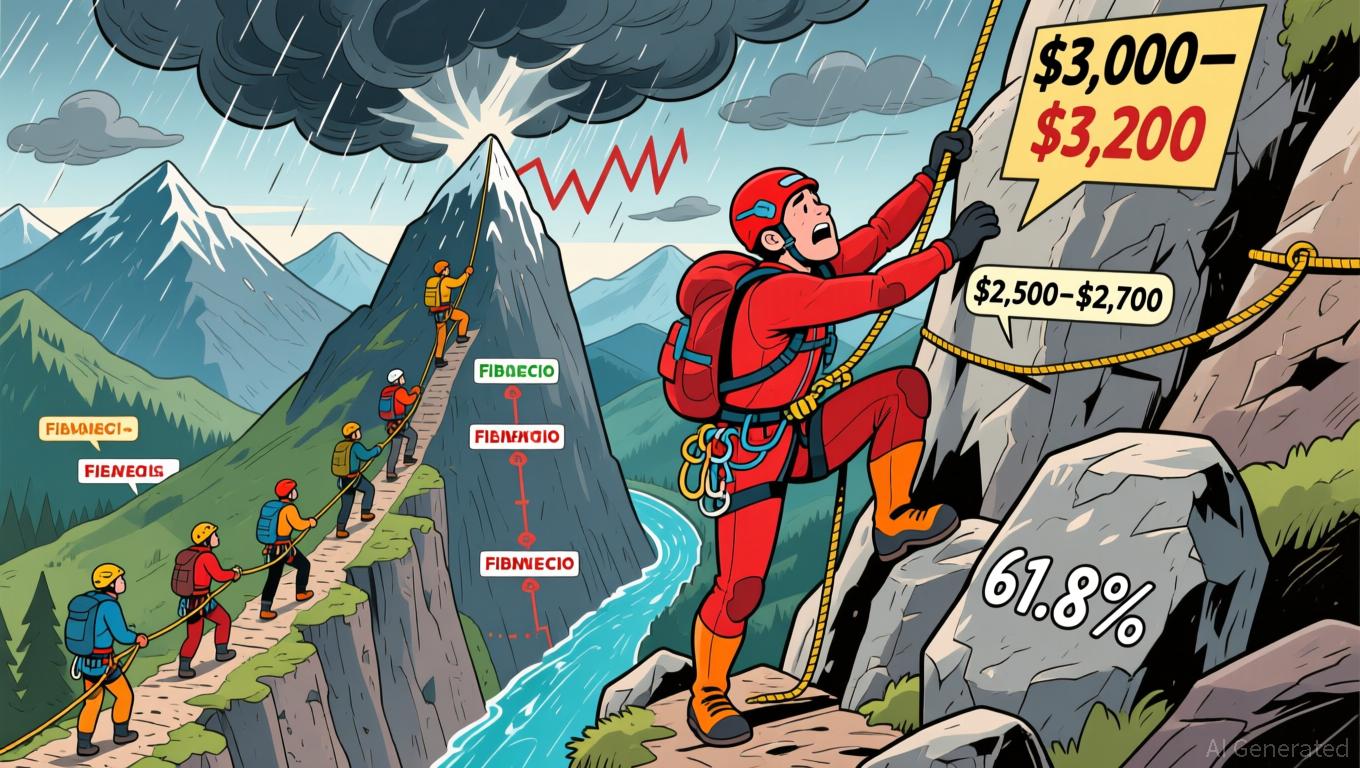South Korea Revamps Cryptocurrency Regulations to Tackle Crime and Strengthen Digital Economy Leadership
- South Korea's Financial Intelligence Unit plans stricter AML measures, including pre-emptive account freezes, to combat crypto crimes by mid-2026. - A $30M Upbit hack linked to North Korea's Lazarus group highlights vulnerabilities, prompting enhanced exchange security protocols and loss coverage pledges. - Terra co-founder Do Kwon faces up to 40 years in South Korea for the $40B crypto crash, reflecting global accountability trends after FTX's collapse. - Regulators push for bank-led stablecoin issuance
South Korea Steps Up Fight Against Crypto Crime
South Korean authorities are ramping up their response to crimes involving digital currencies, signaling a renewed dedication to tightening anti-money laundering (AML) regulations and addressing security gaps in the cryptocurrency sector. The Financial Intelligence Unit (FIU) has unveiled plans for more rigorous AML protocols, which include the ability to freeze accounts preemptively in cases of serious violations. These sweeping reforms, anticipated to be in place by mid-2026, will require changes to existing laws and greater cooperation with international organizations such as the Financial Action Task Force. This initiative represents the most significant update to AML regulations since the 2021 amendments to the Special Financial Information Act.
High-Profile Hacks Drive Regulatory Action
The push for reform has gained urgency following major incidents, most notably a $30 million cyberattack on Upbit, the country’s largest cryptocurrency exchange. Investigators have linked the breach to the Lazarus Group, a notorious North Korean hacking organization. The attack coincided with a press conference announcing Naver Corp.'s $10.3 billion acquisition of Upbit’s parent company, Dunamu Inc., prompting speculation about the timing. Authorities are probing the event, noting similarities to a 2019 hack also attributed to Lazarus. In response, Upbit halted all deposits and withdrawals and has committed to reimbursing affected users from its own reserves to safeguard customer assets.

This incident underscores the ongoing threat posed by state-backed cybercriminals and highlights the necessity for exchanges to implement robust security measures.
Regulatory Fallout from Terra Collapse
The collapse of the Terra ecosystem in 2022 continues to influence South Korea’s approach to crypto oversight. Do Kwon, Terraform Labs’ co-founder, is awaiting sentencing in the United States for his involvement in the $40 billion market crash. His legal team is seeking a sentence of no more than five years, and he has agreed to forfeit $19 million. The case is part of a broader crackdown on crypto industry misconduct, as seen in the 25-year prison sentence handed to former FTX CEO Sam Bankman-Fried. South Korean prosecutors are independently seeking up to 40 years in prison for Kwon, reflecting the nation’s tough stance on accountability in the digital asset space.
Stablecoin Oversight and Global Alignment
The Financial Services Commission (FSC) and the Bank of Korea (BOK) are also advocating for tighter rules on stablecoins, pushing for enhanced liquidity requirements and stricter oversight to protect financial stability. The BOK has argued that banks should be the primary issuers of stablecoins, warning that allowing non-bank entities could weaken regulatory controls. This position is in line with international trends, such as Switzerland’s recent delays in implementing crypto tax-sharing policies.
Trade Policy and Economic Strategy
Beyond the digital asset sector, South Korea is also addressing international trade concerns. Lawmakers have introduced a special bill aimed at reducing U.S. tariffs on Korean automobiles to 15%, contingent upon a $350 billion investment commitment in American industries. This move highlights the critical role of the U.S. market, which is expected to account for nearly half of South Korea’s $70.8 billion in vehicle exports in 2024.
Conclusion: A Comprehensive Approach
Through a combination of regulatory reforms, stronger enforcement, and international cooperation, South Korea is taking decisive steps to protect its digital economy. These efforts aim to position the country as a leader in the global digital landscape while minimizing the risks associated with cryptocurrency-related crime and systemic vulnerabilities.
Disclaimer: The content of this article solely reflects the author's opinion and does not represent the platform in any capacity. This article is not intended to serve as a reference for making investment decisions.
You may also like
CME Suspension: Global Market Vulnerabilities Revealed by Thermodynamic Constraints
- CME Group halted Globex trading on Nov 28, 2025 due to CyrusOne cooling system failure in Chicago, freezing 90% of global derivatives markets. - The outage caused erratic price swings in gold/silver and disrupted EBS forex platforms, exposing vulnerabilities in third-party data center reliance. - Despite post-holiday timing softening immediate impact, the incident highlighted systemic risks from thermodynamic limits in AI-era infrastructure. - CME faces pressure to build redundant systems as it expands c

Turkmenistan's Approach to Cryptocurrency: Navigating Government Oversight and Public Confidence
- Turkmenistan will implement strict crypto regulations from 2026, requiring miner registration, exchange licensing, and anti-money laundering protocols under President Berdimuhamedov. - The framework mirrors Central Asian neighbors' approaches but prohibits anonymous transactions, national symbols in branding, and hidden mining operations. - While aligning with global crypto oversight trends, the law maintains state control over digital assets, raising questions about market viability amid Turkmenistan's

Ethereum Updates Today: Institutional Optimism Meets Technical Challenges: The Pivotal Moment for Crypto
- Ethereum and XRP face critical technical junctures on Nov 28, 2025, with ETH testing $2,500–$3,200 support and XRP hovering near $2.30 amid mixed signals. - Bitcoin's bearish trend (50-day EMA at $100,937) contrasts with JPMorgan's "tradable macro asset" designation, potentially attracting institutional capital. - Solana's BONK memecoin launches a physically-backed ETP on SIX Swiss Exchange, bridging meme coins and traditional markets amid SOL's $140 support risks. - Market dynamics highlight institution

How a Query from an Office Supplies Specialist Transformed a $12 Billion Trucking Approach
- A non-trucking board member's question prompted Ryder System to shift focus from leasing to targeting 80-85% of companies owning their own trucks. - The strategic pivot aligns with growing demand in long-haul freight driven by e-commerce, trade agreements, and tech innovations like IoT fleet management. - Industry consolidation and sustainability trends, including electric trucks, are reshaping competition as firms expand specialized services like temperature-controlled logistics. - Ryder's experience hi
